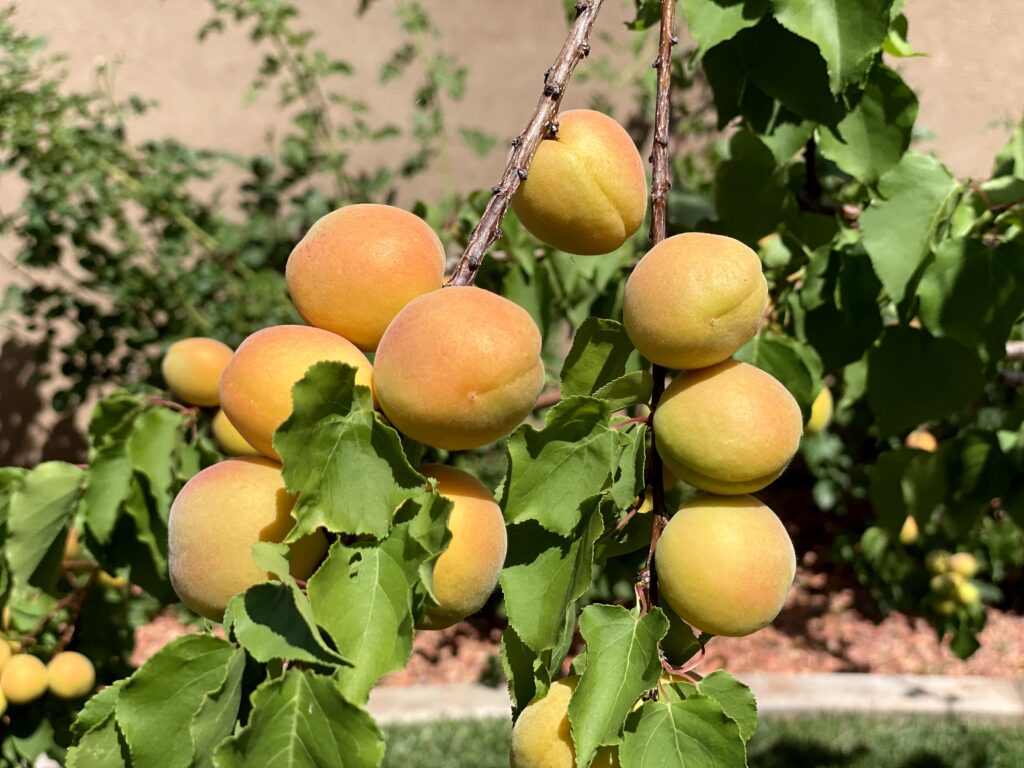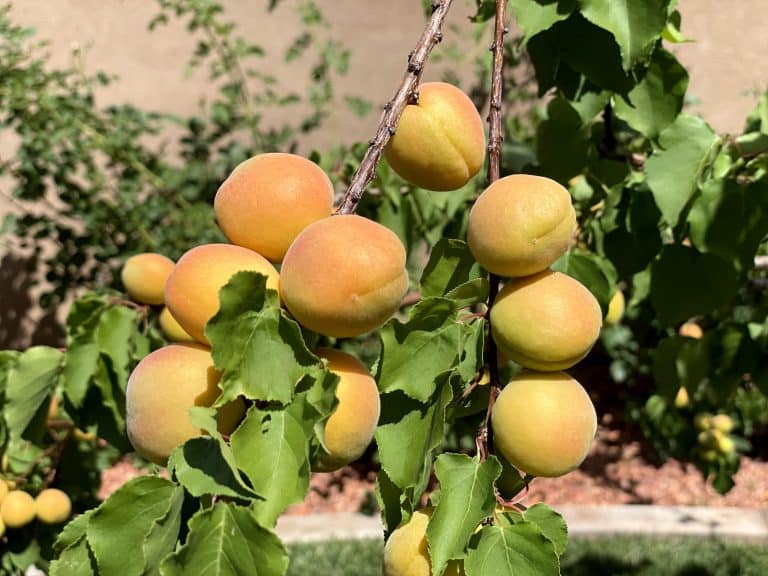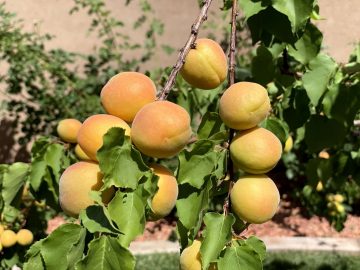
This past week I was at a Community of Christ family camp in the mountains of Northern Utah. It was a hot and dry week and the campground was green with trees. At any time of day I could hear birdsong and kids playing. My voice was hoarse with talking and catching up with old friends and making new ones. I listened to many stories of our camp participants, often about the difficult struggles they are experiencing now or have experienced during the pandemic. That kind of sharing and listening is sacred and essential to making meaningful connections and developing authentic relationships. It was a beautiful week of relationship building.
At a big event like this one, there are so many jobs and responsibilities to make camp run smoothly. Everyone contributed through washing dishes, cleaning bathrooms, teaching children, running campfires, and preparing food. We were fortunate to have a week of great food. One of the roles that I played at camp was kitchen assistant. I arrived at the kitchen bright and early to help with breakfast. I washed my hands, put on my apron, and started cutting up bags of apples for breakfast. Though most of the fruit was ripe and ready to be eaten, a few of the apples were rotten and past their prime. I had to throw them away.
Ripe summer fruits are delicious, but fragile. The sweetness of fruit is fleeting and quickly turns to decay, making what was once desirable into something disgusting. The ripeness of fruit is not enduring, but part of the life cycle that returns seeds to the earth to begin the growing cycle again.
This theme of the transience of ripeness and beauty is an important one in the history of art. After the Protestant Reformation, Dutch artists were forbidden by church leaders to paint traditional biblical scenes. Instead, artists painted ordinary objects that often included fruit and flowers––the still life paintings that we know today. These common objects took on moral meanings in art. Paintings of flowers in full bloom and ripe fruit––sometimes beginning to decay––were important reminders of death and mortality. These paintings reminded viewers that the ripeness of fruit, like the beauty of youth or the ease of prosperous times, did not last forever.
The lectionary text for today begins with the prophet Amos’ vision of a bowl of summer fruits presented to him by God. In my mind, this vision recalls the rotten apples at camp and the fruit painted by Dutch artists. It is a signal that something desirable is coming to an end or a threatened end.
Amos lived during the eighth century BCE, which was notable for being a time of relative peace for Israel. Scholars agree that the Book of Amos is the earliest of the prophetic books, but disagree about who he was. Scholar Donald Gowan, in The New Interpreter’s Bible Commentary, discusses the “Amos tradition” instead of Amos as a single historical person and identifies the Amos tradition’s contribution to scripture as “the beginning of a unique tradition in the history of religion: prophecies of the approaching end of the existence of God’s people based upon God’s judgment of them for failing to live according to the divine standards.” Many more prophets followed in the tradition of Amos.
When I was a Mormon, I used to understand scriptural prophecy in a literal way. This meant that texts like this one in the Book of Amos were foretelling a future that was filled with sorrow and destruction as a failure to keep God’s commandments.
Today, I understand these texts in a different way. Biblical scholar Walter Brueggemann warned against the kinds of readings I used to embrace. In his classic book The Prophetic Imagination, Brueggemann wrote that “The task of prophetic ministry is to nurture, nourish, and evoke a consciousness and perception alternative to the consciousness and perception of the dominant culture around us.” In other words, the job of the prophet is to challenge cultural norms and open us up to new ways of thinking. He noted that prophets were not fortune tellers and that their writings were more than books of righteous indignation.
After the vision of the fruit, this metaphor for the fleeting nature of prosperity, God gets angry and the text tells the author that God is angry because of the ways in which the Israelites treat the poor in their communities. The author tells us that God is ready to destroy God’s people because of how angry God is with the ways in which they have cheated and dismissed the poor and cared for money and their own self-interest more than the care and thriving of all of God’s people. And then God goes on and on about the terrible things God will do in consequence in an effort to get the author to understand the seriousness of the community’s sin.
How should we understand this text? What is the Amos tradition really getting at? Jewish theologian and Civil Rights activist Abraham Heschel wrote extensively on the role of Hebrew prophets in his book titled The Prophets. In the first chapter, he made a number of observations about prophets and prophetic texts that can help inform our understanding of Amos today. Heschel’s work has also really helped me personally to reframe the meaning of prophets and prophetic texts away from Mormon bureaucrats holding tight to white Evangelical norms and toward prophets holding communities accountable for the systems of oppression that they hold in place.
At the risk of being overly academic, I want to share some of Heschel’s insights that are helpful in understanding Amos’ vision of fruit and the conversation he has with God. Heschel wrote that prophets are extremely sensitive to injustice and call out the corruption of religion. Prophets make predictions of disaster, which are really calls to repentance. When they speak, they begin with doom and then emphasize hope. Most importantly for our text today, prophets experience the feelings of God and prophets teach that few are guilty but all are responsible.
The Amos tradition communicated God’s anger at the injustice experienced by the poor at the hands of a community that was in prosperous times. The author told his readers that God felt this injustice acutely and threatened to destroy all prior agreements with Israel because some Israelites were exploiting the poor in their own self interest.
The text isn’t telling us what God would do so much as how God felt as God witnessed the sin of oppressing the poor. God was saying that regardless of who started this situation, everyone in the community was responsible for ending it. Here, God was siding with the poor, which is a constant theme in scripture and a central tenet of liberation theology, which has influenced Community of Christ since the 1960s.
The difficulty of applying the meaning of the text to our own time is that there are so many applicable situations in our cultures and communities that routinely afflict the poor, grow the ranks of the poor, and criminalize the poor so that they can better be exploited and manipulated by others. This happens in so many ways in our communities and countries that we may not always be able to see it. Christian culture in my community justifies this by spreading the following three myths: 1) that those who are poor deserve to be poor, 2) that hard work can easily pull people out of poverty, and 3) that the trauma of poverty is not a barrier to escaping poverty. Contemporary Christianity has been complicit in perpetuating these myths about poverty and the reading for today makes it clear that our contemporary judgements are not in alignment with God’s will.
When a society marginalizes a group of people, we make that group more likely to experience poverty.
When laws that criminalize LGBT identities and seek to exclude LGBT people from schools, workplaces, housing, healthcare, sports teams, public bathrooms, or even public discussion, we create poverty where none need exist. These kinds of exclusion from public spaces creates additional difficulties for LGBT folks in securing jobs, housing, and other necessities of life. By politicizing LGBT identities, we rob people of opportunity. When cultural practices encourage and maintain racial segregation in schools, neighborhoods, jobs, we create poverty where none need exist.
When police treat Black, Indigenous, and other people of color as criminals in a society that associates these identities with criminality, we create poverty where none need exist. Incarceration ensures poverty and formerly incarcerated individuals will have difficulty getting a job for the rest of their lives.
When minimum wage is not a livable wage, we ensure that people will be trapped in poverty with no way to work their way out. Corporations created this cycle of poverty, but all of us allow it to continue.
Laws that criminalize safe abortion impact many people in society and they grow the ranks of the poor in ways that disproportionately impact women and gender minorities.
When a society marginalizes a group of people, we make that group more likely to experience poverty. In doing so, we create injustice and God is sensitive to the violence that these injustices inflict on the lives of God’s people.
And if we are telling ourselves right now that we didn’t create these systems, that we are not responsible for creating transphobia, homophobia, racism, the prison system, minimum wage laws, or the overthrow of established abortion rights, the Amos tradition is telling us that we are still responsible for reducing the oppression that people experience. And if we are using our religion to justify inaction and as inspiration dole out blame, exclusion, and shame on those who we have created as poor, the Amos tradition is telling us that our religion is corrupt and we are still responsible.
This visionary experience in the Book of Amos speaks to our Enduring Principle of pursuing peace, which we engage when we resist and work to change unjust systems. The work of repentance that the Amos tradition calls us into aligns with contemporary scripture in Community of Christ.
“When your willingness to live in sacred community as Christ’s new creation exceeds your natural fear of spiritual and relational transformation, you will become who you are called to be. The rise of Zion the beautiful, the peaceful reign of Christ, awaits your wholehearted response to the call to make and steadfastly hold to God’s covenant of peace in Jesus Christ.
Doctrine and Covenants 164:9b
Our experience of living in prosperous times, like bowls of fruit and ripe apples, will not last forever. If our prosperity and privilege causes us to ignore the poor, grow the ranks of the poor, and exploit the poor, we sin against God’s people. May we turn away from these sins, open our eyes, and feel the anger at injustice that God feels, understanding that we may not be guilty, but we are responsible for pursuing peace and undoing the corrupt systems that are growing around us.
Pray with me:
God of the Poor,
Remind us that your love is not limited to the prosperous
That ripe fruit is not enduring
But your love for your people
And especially those who we have made poor
Lasts forever.
Help us to hear this call to repentance
To see and resist systems of injustice
That create disadvantage and harm all around us.
Plant in us a vision for a more just and gentle future
That nags at us continually.
In the name of Jesus, the peaceful one,
Amen.
This sermon was given at the Beyond the Walls online gathering on July 17, 2022.






5 Responses
This is SO GOOD, Nancy. Just terrific. I would do anything to hear a sermon like this at church. And thanks for referencing the scholarship on the Amos tradition. Very interesting and helpful.
“In other words, the job of the prophet is to challenge cultural norms and open us up to new ways of thinking.” I so very much want leadership like this. New ways instead of retrenchment. In the description of the many situations that afflict the poor, I thought of the title of a book I’m reading – Mary Magdalene Revealed: The First Apostle, Her Feminist Gospel & the Christianity We Haven’t Tried Yet. I can’t help but wonder what the world would be like if we who professed to be Christian actually lived it. The oppression you mentioned wouldn’t exist.
Thank you for the information about the Amos tradition. It’s interesting!
This is beautiful and insightful, Nancy. Thank you.
What a wonderful way to read the Book of Amos. I admit that I haven’t studied Amos much, but this arouses my interest.
I really enjoyed hearing you teach this. I ended up also teaching for my local congregation this past Sunday on Amos. It was interesting to see how different people would find different messages from the text as you had a very different approach then I had. We both ended up talking about justice just from different angles.